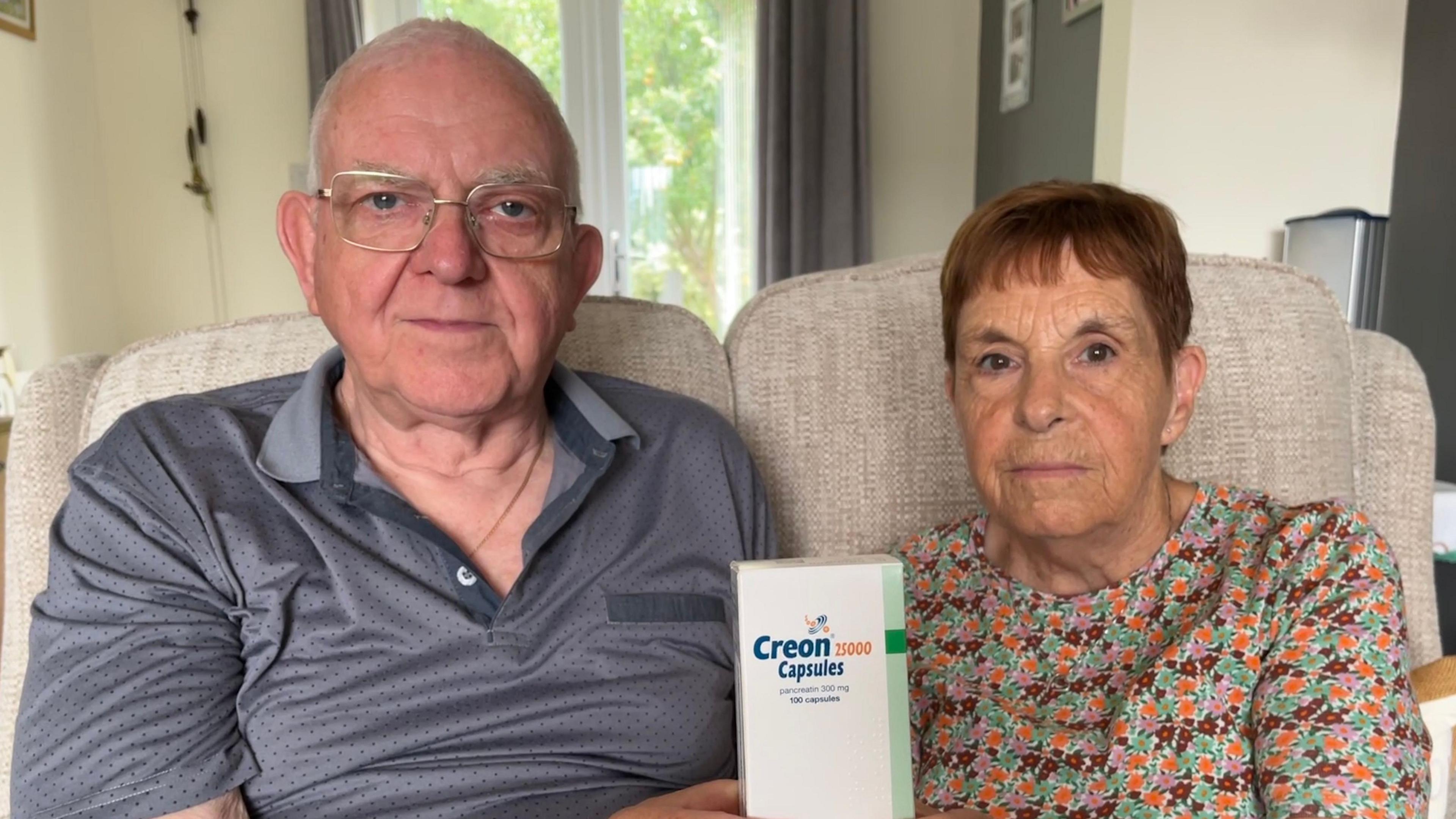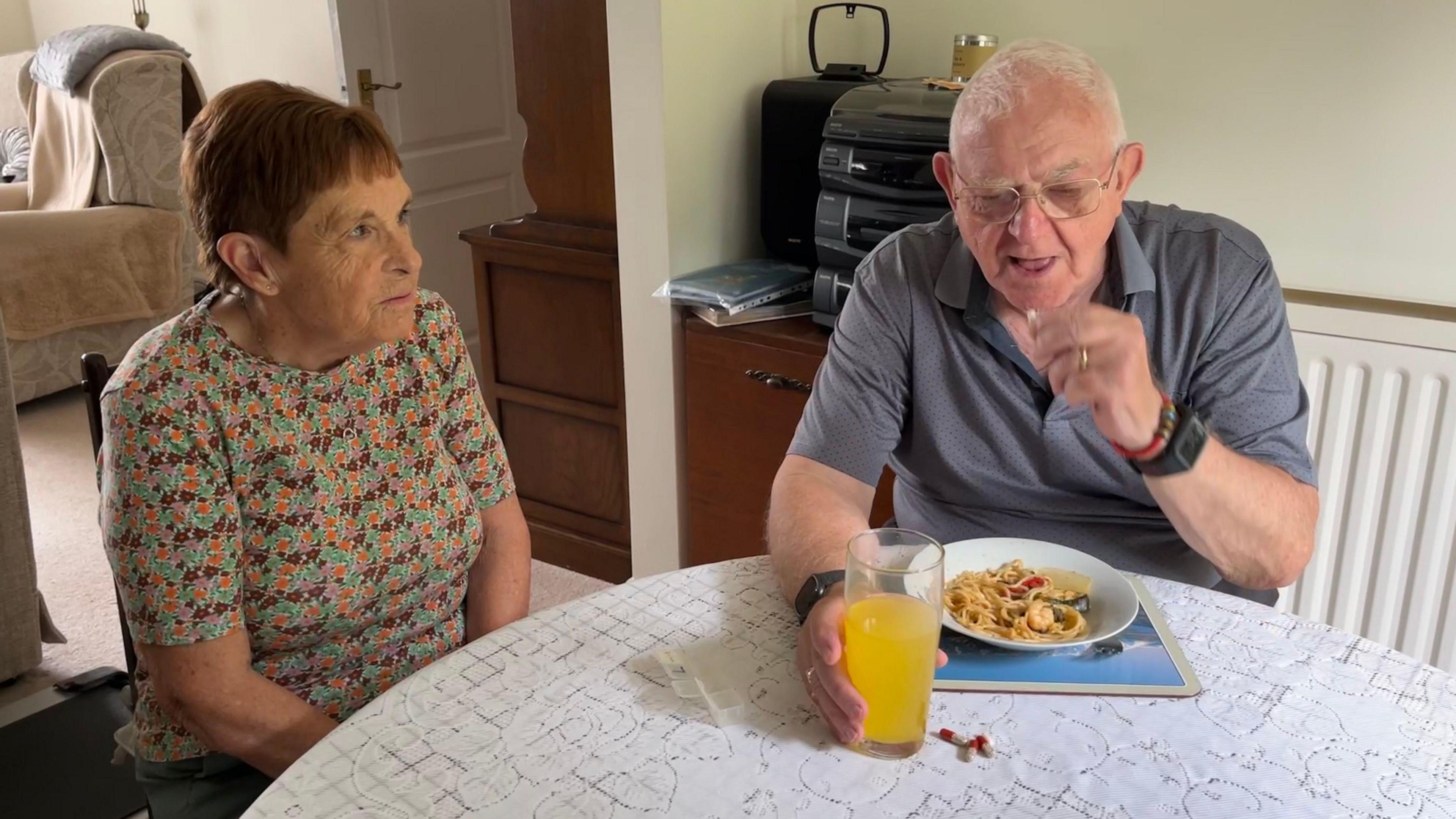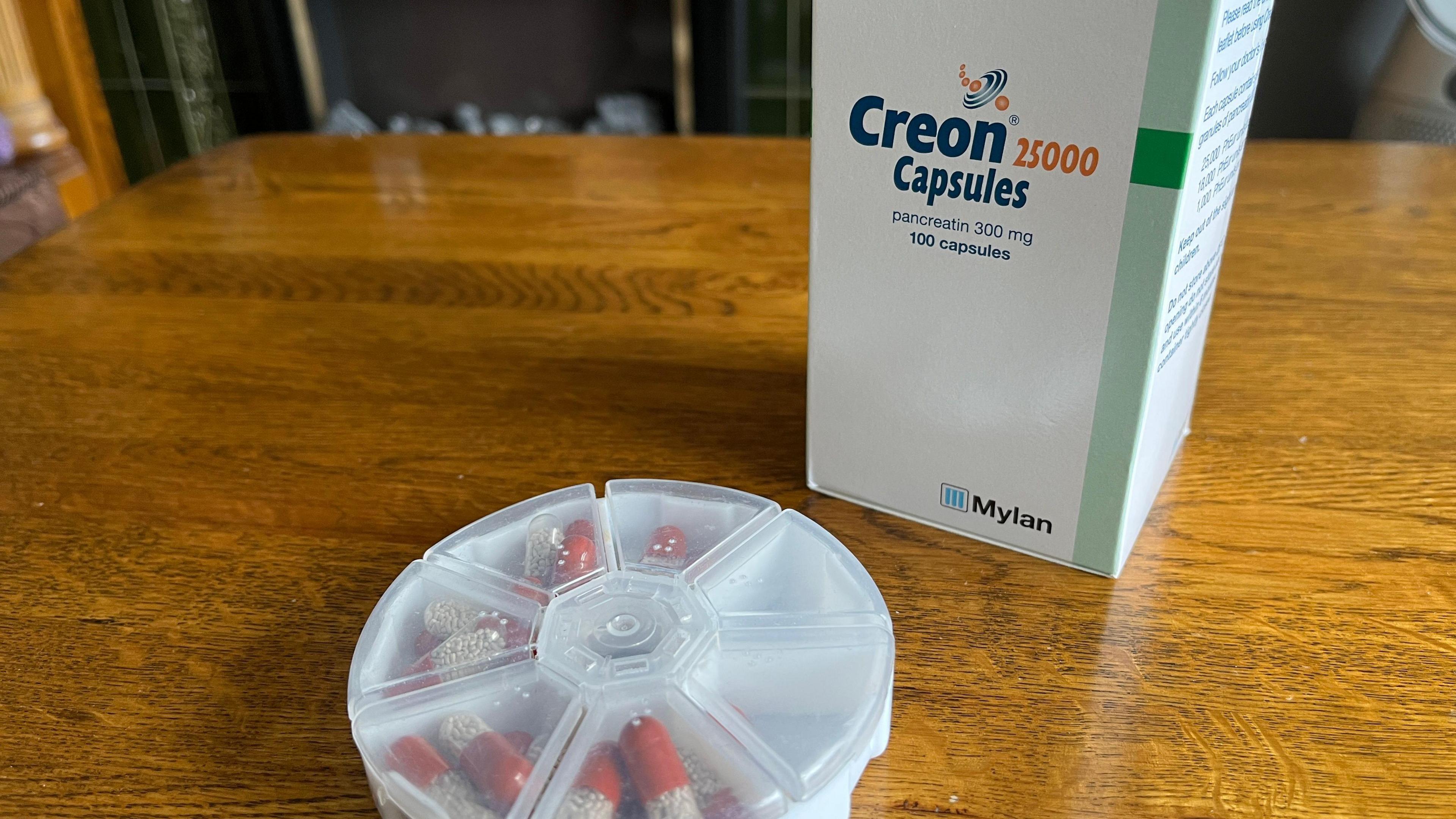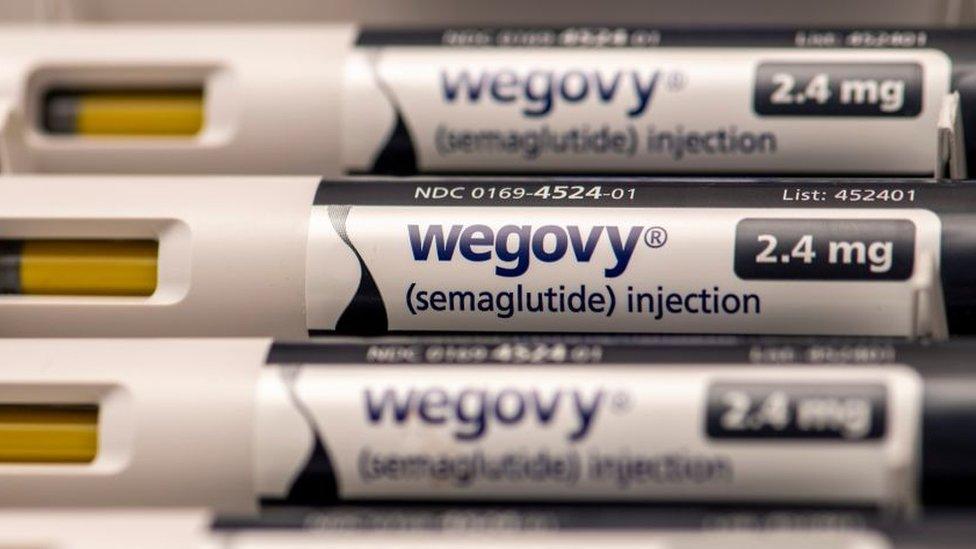'He'll be dead by then' - fears over drug shortage

David and Maureen Allen are constantly searching chemists for Creon
- Published
A pancreatic cancer patient says he is "living day-to-day", as he struggles to get hold of medication which keeps him out of hospital.
RAF veteran David Allen, from Marton near Gainsborough, is unable to digest food without the enzyme replacement therapy Creon.
The Department for Health and Social Care (DHSC) said the drug was in short supply due to "ongoing global supply problems".
Mr Allen's wife, Maureen Allen, said one local pharmacy told them it would not have Creon in stock until 2026, prompting her to reply: "He'll be dead by then."

Mr Allen is unable to digest food without enzyme replacement therapy
Mr Allen was diagnosed with pancreatic cancer four years ago and doctors gave him six weeks to live.
His pancreas no longer makes the enzymes needed to get nutrition from food, so doctors prescribed Creon to replace them.
Mr Allen has to take four high-strength capsules with every meal, and two with a snack or milky drink, which means a box of 100 lasts less than a week.
He described the current shortage as "depressing" and "quite frightening", adding "it can get fraught when your tablets start running out and you haven't got a clue where the next supply is going to come from."
Mr and Mrs Allen said they start every day by scouring the internet and phoning pharmacists within an hour's drive of their home, trying to track down Creon, or its alternatives Pancrex and Nutrizym.
Last week, Mr Allen made a two-hour round trip to collect a 19-day supply he had found in Doncaster.
Without Creon, patients can suffer pain, extreme bloating and severe diarrhoea. Ultimately, they can become severely underweight and malnourished.
Mrs Allen said: "If this goes on he'll get weaker and weaker and, for the lack of Creon, he could end up in hospital being tube-fed, because that's the only way out.
"This is life and death for somebody like David."

Creon is in short supply across Europe, according to the Department of Health
The DHSC said supply issues with the drug were Europe-wide, caused by limited availability of raw ingredients and "manufacturing capacity constraints".
It said that had had a knock-on effect of increasing demand for alternatives, which were also now in short supply.
In a statement, the DHSC said: “We know how distressing this can be for patients and we are working closely with industry, the NHS and others in the supply chain to mitigate the risk to patients and make sure alternative products are available until their usual treatments are back in stock.”
Mr and Mrs Allen have written to their MP Sir Edward Leigh, the Department of Health, and the health secretary Wes Streeting to ask the government to secure supplies of the drugs from outside Europe.
- Published2 August 2024

- Published31 July 2024

- Published11 February 2024
